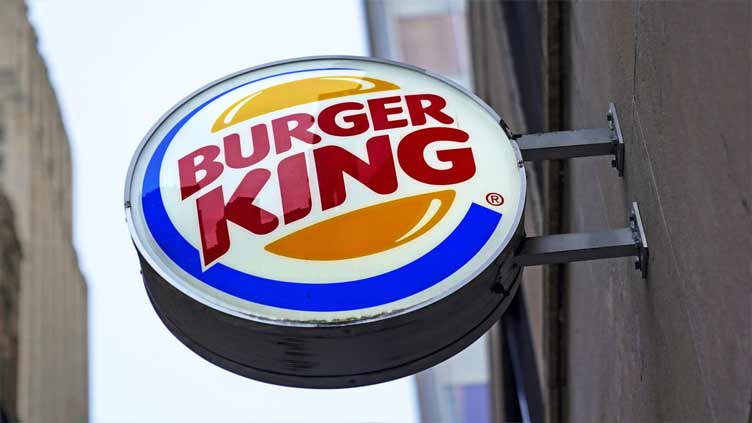Food ads have long made their subjects look bigger, juicier and crispier than they are in real life. But some consumers say those mouthwatering ads can cross the line into deception, and that’s leading to a growing number of lawsuits.
Burger King is the latest company in the crosshairs. In August, a federal judge in Florida refused to dismiss a class action lawsuit that claims Burger King’s ads overstate the amount of meat in its Whopper burger and other sandwiches.
But Burger King is far from the only one.
Perkins Coie, a law firm that tracks class action suits, said 214 cases were filed against food and beverage companies in 2022 and 101 were filed in the first six months of this year. That’s a huge increase from 2010, when just 45 were filed.
Pooja Nair, who represents food and beverage companies as a partner with the Beverly Hills, California-based law firm Ervin Cohen and Jessup, said waves of class action lawsuits started hitting federal courts a few years ago.
Some of the first were false advertising claims against snack chip makers for not completely filling the bags; most of those were dismissed, she said. Since 2019, hundreds of lawsuits have been filed asserting that consumers are being misled by “vanilla-flavored” products that don’t contain pure vanilla or vanilla beans.
Plaintiffs’ attorneys largely file the cases in the same courts in New York, California and Illinois, she said, where federal courts are less likely to dismiss them outright.
While the case against Burger King was filed in Miami, where its parent company has its US headquarters, one of the attorneys who filed it has similar cases pending in New York against Wendy’s, McDonald’s and Taco Bell.
That attorney, James Kelly, didn’t respond to a message seeking comment.
Companies often settle cases before a lawsuit is filed instead of spending the time and money fighting it in court, Nair said.
Earlier this summer, A&W and Keurig Dr Pepper agreed to pay $15 million to settle claims they had deceived customers with the label, “Made with aged vanilla” on cans of soda which actually used synthetic flavoring.
Others say growing consumer awareness is behind the trend. Social media can instantly make a photo of a soggy sandwich go viral, informing other potential plaintiffs, said Jordan Hudgens, the chief technology officer for Dashtrack, an Arizona-based company that develops restaurant websites.
Rising awareness of health and nutrition is also causing people to question product claims, he said.
Ben Michael, an attorney with Michael and Associates in Austin, Texas, said inflation also might be making restaurants a target right now, since some may have cut back on portion sizes to cut costs.
“Unfortunately, many businesses make these changes without consulting their marketing department or updating their menus to represent new portion sizes and ingredients,” he said. “This leaves them open to the kinds of lawsuits we’ve been seeing more of.”
In the Burger King case, plaintiffs in multiple states sued in March 2022, claiming that advertisements and photos on store menu boards show burgers that are about 35% larger – with double the meat – than the burgers they purchased. The plaintiffs said they wouldn’t have bought the sandwiches if they had known the actual size.
A Burger King spokesperson said the plaintiffs’ claims are false, and that the beef patties in its ads are the same ones it serves across the US.
In late August, US District Judge Roy Altman dismissed some of the plaintiffs’ claims. He ruled that the plaintiffs can’t argue that television or online ads constituted a “binding offer” from Burger King, because they don’t list a price or product information. But he said the plaintiffs could argue that the images on the menu boards represented a binding offer. He also didn’t dismiss claims of negligent misrepresentation.
Nair said it’s unclear how the case will be resolved. Generally, she said, cases against fast food giants have been hard to win. Unlike boxes of cereal or sodas, every sandwich is different, and some might look more like the images on menu boards than others.
The US Supreme Court hasn’t weighed in on these issues, so they’ve been decided on a court-by-court basis.
In 2020, a federal appeals court upheld the dismissal of a lawsuit against Dunkin’. The plaintiffs said the company deceived them when it said their wraps contained Angus steak; they actually contained ground meat.
Ultimately, the Burger King case and others could cause companies to be more careful with their ads, said Jeff Galak, an associate professor of marketing at Carnegie Mellon University’s Tepper School of Business. But that could come at a cost; more realistic photos might lead to lower sales.
“There’s a legal line. When is it puffery and when is it deceit?” Galak said. “Companies are always trying to ride right up against that line.”
Post Views: 109


 Sports3 months ago
Sports3 months ago
 Fashion2 months ago
Fashion2 months ago
 Sports3 months ago
Sports3 months ago
 pakistan3 months ago
pakistan3 months ago
 pakistan3 months ago
pakistan3 months ago
 World2 months ago
World2 months ago
 World2 months ago
World2 months ago
 Sports2 months ago
Sports2 months ago





















